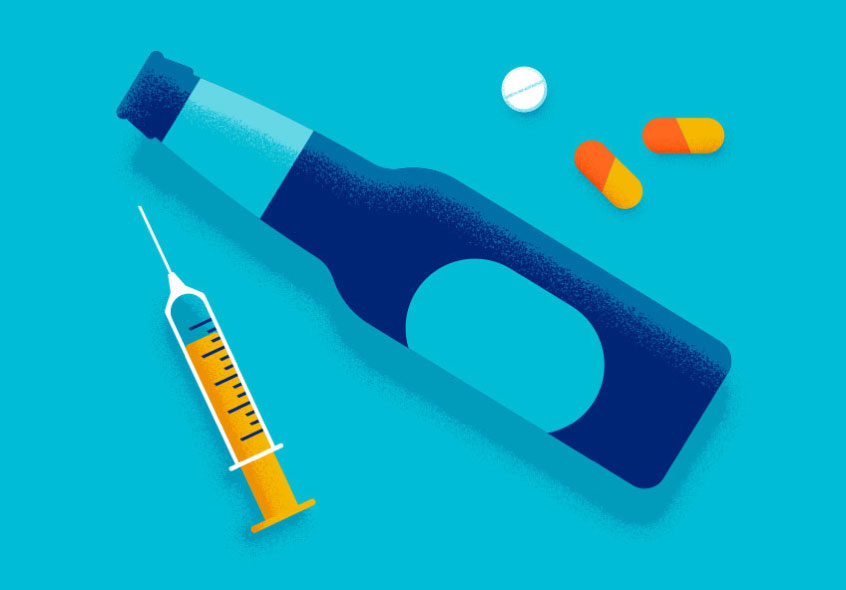Substance use disorder is a condition that develops when someone abuses drugs or alcohol. It can be hard to identify who has this disorder, as it can happen very slowly and/or develop gradually over time. This blog post will discuss the signs of substance abuse, what you should do if you think someone has a substance use disorder, and how to help them get better.
Contents
What Is Substance Use Disorder?
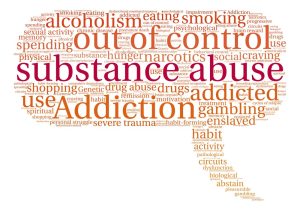 Substance use disorder is the severe compulsive use of a substance that causes physical, mental, and emotional dysfunction. Substance abuse encompasses an extensive range of behaviors from excessive to dependent consumption patterns.
Substance use disorder is the severe compulsive use of a substance that causes physical, mental, and emotional dysfunction. Substance abuse encompasses an extensive range of behaviors from excessive to dependent consumption patterns.
The Diagnostic and Statistical Manual for Mental Disorders (DSM) contains diagnostic criteria. This is for different types of substance use disorders as well as information about their prevalence in the world. It also describes psychiatric treatments. These are available for those who suffer from this condition:
One can define this disorder by symptoms related to tolerance or withdrawal. These must be present if other diagnoses such as anxiety or mood disorders are not primary. This type of disorder is not limited to any particular substance but can include alcohol, opioids, cocaine, and methamphetamine.
Types of Substance Abuse Disorder

There are many types of substance abuse disorders. Each one has a different set of symptoms. The most common types are:
Alcoholism
This type of substance abuse disorder is the consumption of a high amount of alcohol over a long period. Those who suffer from this condition are alcoholics. They also have intense cravings for alcoholic beverages. People with alcoholism will continue to drink even if it negatively affects their personal life. There may be other important aspects of their lives such as work or school.
Opioid Use Disorder
This type of substance abuse disorder is characterized by compulsive use, misuse, or dependence on opioids. These are such as heroin and prescription painkillers. Opioid users will feel an intense craving for these substances. This they cannot control. It can affect the way that they live their lives. This is because of how powerful this craving becomes.
Drug Addiction
This type of substance abuse disorder involves a compulsion to seek out drugs. This is even if there are negative consequences associated with them. Those who suffer from drug addiction will continue to use drugs. It is despite knowing about the problems that may occur in their life due to using these substances. It is also possible for those with drug addictions to become addicted. This is only after only trying one particular drug once. This is known as First-Time Drug Use.
Tobacco Use Disorder
It is estimated that around one in every five deaths in the world is related to tobacco use disorder. This type of substance abuse disorder is characterized by the compulsive use of cigarettes, cigars, or smokeless tobacco products. Tobacco users will experience cravings for these products. They may find it difficult to quit using them even if they want to.
Marijuana Use Disorder
This type of substance abuse disorder is defined by the recurrent use of marijuana. This results in negative consequences. These are such as problems with work, school, or relationships. People who suffer from this condition may also have a strong craving for marijuana. They may be unable to stop using it despite knowing about the potential problems.
Cocaine Use Disorder
This type of substance abuse disorder is diagnosed when there is a compulsive need to use cocaine. This is also when the individual has difficulty controlling their usage. Cocaine users will often experience intense cravings for the drug. They may become addicted after using it only a few times.
Signs of Substance Abuse Disorder

There are many sins related to substance abuse disorder, and each one has its own set of symptoms. The most common signs that someone may be suffering from a substance abuse disorder are:
Fluctuations In Weight
This sign is common in people who abuse alcohol and drugs. This is because these substances can cause fluctuations in a person’s weight. Alcoholics may lose weight quickly. This is because of their lack of food intake, while drug addicts may gain weight. This is due to the increased amount of calories that they are taking in.
Changes In Behavior
People who suffer from substance abuse disorder often exhibit changes in their behavior which can be noticed by those around them. This change in behavior may include becoming more aggressive or irritable, having mood swings, or becoming secretive about their activities.
Problems With School Or Work
Substance abusers often have problems with school or work as a result of their addiction. They may miss days at work or school, perform poorly on assignments or tests, or get into trouble with their superiors.
Bruises, Scars, Or Cuts On Skin
Those who abuse substances such as cocaine or heroin may have cuts on their fingers. This is from injecting the drug into their body using a needle. Other drugs can cause bruises and scars on people’s bodies. It can be due to them consuming these substances in ways that aren’t intended for consumption; it is possible for people to ingest alcohol through enemas which will result in severe damage to the rectum area of the user.
Health Problems
Substance abuse can cause a variety of health problems in those who use them. Alcoholics may have liver damage, drug addicts may develop HIV/AIDS or other infections, and tobacco users may get lung cancer. There can also be psychological impacts that occur as a result of substance abuse such as depression or anxiety disorders.
Damaging Physical Appearance
Those who abuse certain substances can develop physical signs that show their addiction. For example, someone with a heroin addiction may have sunken cheeks and dark circles under the eyes because of malnutrition. Sometimes people who abuse substances can also look like they have aged prematurely.
Lack of Control
Substances can cause a person to lose control of themselves and their actions. Alcoholics may drink in dangerous situations, such as when they are driving or with young children present, while drug addicts often continue using even though it is causing them harm.
Loss Of Interest In Hobbies Or Activities
Someone who has developed an addiction will typically have less interest in hobbies and activities that were once important to them before the substance abuse disorder began. This lack of interest indicates that there is something wrong that needs professional attention.
Inability To Stop Using Substance
A major sign of substance use disorder is being unable to stop taking drugs or consuming alcohol despite knowing about the negative consequences this behavior causes. A person with a substance abuse disorder will often continue using the drug even when they are aware of the negative consequences it is having on their life.
Causes of Substance Use Disorder
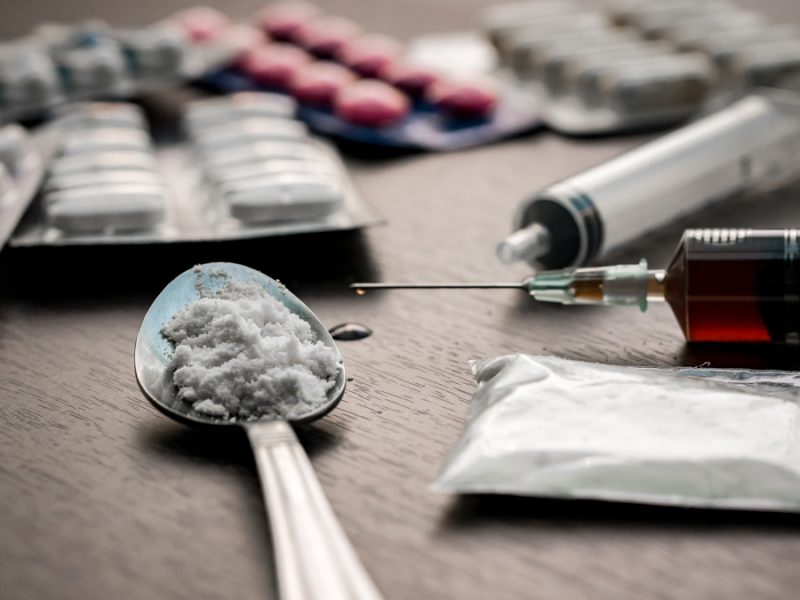
There are many causes of a substance use disorder, and these can vary depending on the specific drug or type of alcohol that is being abused. Some of the common causes include:
Genetics And Family History
It has been found that there may be a genetic component to developing a substance abuse disorder because people who have family members with this problem are more likely to develop into addicts themselves; for example, children whose parents were heavy drinkers when they were younger will drink at higher rates in their adulthood than those who do not come from families where alcoholism was present. A person’s genes also affect how he/she reacts to certain drugs, which makes some people more susceptible than others to becoming addicted even if they aren’t abusing substances yet. The way someone’s brain develops can also be a factor in whether or not they develop an addiction.
Tolerance And Physical Dependence
Another leading cause of substance use disorder is a physical dependence on the drug being abused; for example, if someone takes prescription painkiller medications regularly then his/her body will become addicted to these drugs over time because it has developed a chemical dependency which means that without them, he/she cannot function normally. Other substances like alcohol and marijuana have been shown to create tolerance levels among users which means that their bodies need more of the drug to achieve the same effects as before usage began. For instance, when someone drinks alcohol regularly this person’s liver becomes damaged from having too much booze present in its system so therefore he/she will need to drink more and more alcohol in order to feel the desired effects.
Psychological Factors
Some people may turn to drugs or alcohol as a way of coping with difficult life situations, such as stress from work or personal problems. These psychological factors can increase someone’s risk of developing an addiction because they make it harder for that person to cope without using substances. Additionally, some people may start abusing drugs or alcohol as a way of self-medicating mental health problems like depression or anxiety disorders, which can also lead to addiction if not treated properly.
Environmental And Social Influences
Finally, another common cause of substance abuse disorder is exposure to environmental and social influences that promote drug and alcohol use. For example, if someone lives in a neighborhood where there is a lot of drug activity then that person is more likely to become involved in using drugs themselves. Additionally, if someone’s friends are all into partying and drinking heavily then it is more likely that this person will start abusing alcohol or other substances as well.
Risk Factors of Substance Use Disorder
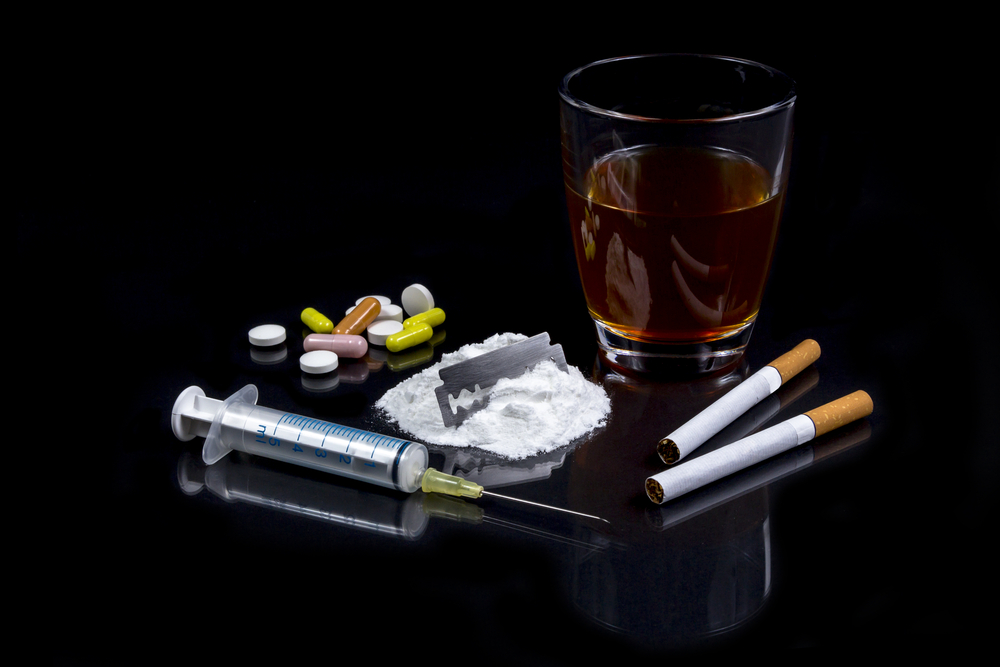
There are many risk factors for developing a substance use disorder, and these can vary depending on the age of the person using them as well. Some of the most common risk factors include:
Work-Life Pressure
Many people who use drugs or alcohol to cope with stress at work are more likely than those who do not experience this kind of pressure to develop a substance abuse disorder, especially if they use these substances on a regular basis. Other kinds of life pressures can also increase the risk for developing an addiction; for example, having financial difficulties and trouble in one’s personal relationships both put someone at greater risk as well.
Social And Cultural Factors
A person who comes from a family where drug or alcohol problems were present is more likely to end up abusing them himself/herself. This is because he/she has been exposed to it since childhood. This means that his/her brain always knows how using such substances feels good and relieves stress. Additionally, the media often portrays alcohol and drug use in a positive light. This can make it seem like more of an attractive option for people. It is for those who are struggling with their mental health or coping mechanisms.
Poor Mental Health
People who suffer from poor mental health are also at a higher risk for developing a substance abuse disorder because they may turn to drugs or alcohol as a way of self-medicating their problems. This is very dangerous because if someone is already dealing with one addiction, then adding another will only make things worse. Some common mental health problems that lead to addiction include depression, anxiety disorders, bipolar disorder, and schizophrenia.
Age
The younger someone is when he/she starts using drugs or alcohol, the greater his/her risk of developing a substance abuse disorder. This is because the younger someone’s brain is, the more susceptible it is to being “hijacked” by addictive substances and behaviors. Additionally, people who are over 60 years old are at a higher risk for developing an addiction to prescription medications that they may be taking for other health problems.
Gender
Men are more likely than women to develop a substance use disorder, although this difference is slowly narrowing as more women become addicted to drugs and alcohol. There are many reasons why men may be more prone to addiction than women, including social and cultural influences as well as biological differences. For example, men may be more likely than women to seek out thrills and risky behavior which can put them at greater risk for abusing drugs and alcohol.
Diagnosis of Substance Use Disorders
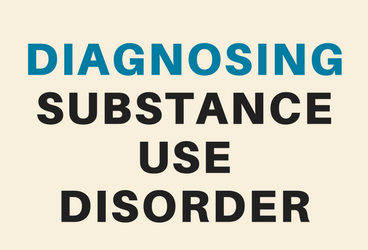
There are many ways to diagnose a substance use disorder, and the most common one is through a psychiatric evaluation. This evaluation will look at a person’s mental health history, as well as his/her drug and alcohol use. If it is determined that someone has a substance abuse disorder, then he/she will likely be referred to an addiction specialist for treatment. Some other methods are:
Tests
There are many tests that a doctor may use to diagnose an addiction, including the Addiction Severity Index (ASI) and Drug Abuse Screening Test-Revised. However, these tests are not always accurate because they may overdiagnose people as having a substance abuse disorder when in reality they do not.
Drug Tests
A doctor may also order drug tests for someone he/she is worried about developing a substance use disorder. These can be urine tests or blood tests which look for any traces of drugs in one’s system that indicate recent usage or binge drinking episodes. While this method does have its flaws due to false positives and other reasons, it can still help determine whether someone has developed an addiction problem or not depending on how often he/she uses certain substances; if someone is testing positive for drugs then he/she is likely having a problem with them.
Evaluating Substance Use Disorders
The severity of a person’s addiction will depend on many factors, including:
Length Of Time Using Drugs Or Alcohol
If someone has been using substances regularly over the course of years or decades, then they are more likely to have developed an addiction than if they just started doing so recently. This does not mean that people who develop addictions quickly cannot also become addicted; it simply means that those who do it slowly are significantly more at risk because their brains and bodies were given time to adjust to the effects of these substances before becoming dependent upon them.
Social Factors And How People Use Substance
As explained above, social factors play a large role in addiction, and how someone uses drugs or alcohol can also determine their risk of developing an addiction. For example:
Using Drugs With Others
When people use drugs with others, they are more likely to become addicted because this encourages them to do so and makes it seem like something normal that everyone does. Additionally, if one person begins abusing substances then his/her friends will often follow suit for fear of being left out; therefore treating substance abuse as a group activity is dangerous because it creates peer pressure which increases the chances of someone becoming dependent on these substances.
Using Alcohol Alone
While using alcohol alone may not necessarily indicate an addiction problem (since many people drink by themselves), doing so frequently is still problematic because it can lead to alcohol dependency. This is especially true if someone drinks to the point of blacking out or passing out, as this means they are consuming dangerous amounts of alcohol and are putting their health at risk.
Treatment of Substance Use Disorders

There are many treatment options available for people struggling with a substance use disorder, and the most effective one will depend on the person’s individual needs. Some of the most common treatments are:
Inpatient Treatment
This type of treatment involves living at a rehabilitation facility for a period of time (usually 30-90 days). During this time, patients will receive 24/17 care from addiction specialists who will help them to overcome their addiction. Doctors consider this to be the best option for those with severe addictions. This is also for those who do not respond to other forms of treatment.
Outpatient Treatment
Outpatient treatment allows people to live at home while receiving regular therapy sessions from an addiction specialist. This is a good option for those who cannot take time off work or have other obligations that prevent them from living at a treatment facility. Like inpatient treatment, this is often for individuals who have serious addiction problems or those who do not respond to outpatient care.
Self-Help Groups
Self-help groups are another effective form of substance use disorder rehabilitation because they do not require patients to pay fees and can be done on one’s own time without needing a doctor’s permission or supervision; there are many self-help groups available including Alcoholics Anonymous (AA), Narcotics Anonymous (NA) and SMART Recovery. These options may also provide additional benefits such as a 12 step program helping with relapse prevention by creating support networks through group meetings where people speak about their struggles with the same issues so others can learn from their experiences.
Medications
 There are a few medications available that can help people to overcome their addiction. Doctors usually prescribe these in combination with therapy or self-help group participation. The most common medications that one can use for this purpose are:
There are a few medications available that can help people to overcome their addiction. Doctors usually prescribe these in combination with therapy or self-help group participation. The most common medications that one can use for this purpose are:
Buprenorphine (Suboxone) – This is a medication that helps to reduce cravings for opioids such as heroin and prescription painkillers. Doctors usually prescribe this to those who have recently completed an inpatient treatment program.
Naltrexone – This is a medication that blocks the effects of opioid drugs and alcohol. Doctors usually prescribe this to those who have relapsed after completing an inpatient or outpatient treatment program.
Acamprosate (Campral) – This medication can help to treat alcohol addiction. This medication also helps to reduce the risk of relapse by 25-50% in people. These are those who have recently completed an inpatient treatment program.
Therapy
 Many people find that therapy is an essential part of overcoming their addiction. This is because it allows them to address the underlying issues. These may have led to their substance abuse. There are many different types of therapy available, and the most effective one will depend on the person’s individual needs. Some common therapies include:
Many people find that therapy is an essential part of overcoming their addiction. This is because it allows them to address the underlying issues. These may have led to their substance abuse. There are many different types of therapy available, and the most effective one will depend on the person’s individual needs. Some common therapies include:
Cognitive-Behavioral Therapy (CBT) – This type of therapy helps patients to change their thoughts and behaviors in order to avoid relapse.
Motivational Enhancement Therapy (MET) – MET helps patients to develop motivation for treatment and sobriety by increasing self-efficacy and providing feedback about personal progress.
Family Therapy – Family therapy can be beneficial for those who have a substance use disorder because it allows them to address issues with their family that may not have been possible during individual treatment.
Relapse Prevention Therapy – Relapse prevention therapy is another type of CBT that helps patients to recognize the warning signs of relapse and develop ways of avoiding these situations.
Social Support
These are just a few of the many different types of substance use disorder rehabilitation available. Each person’s needs will be different. It is important to find an option that fits best with your individual lifestyle and circumstances. This is so that you can have the best chance of success. If you or someone you know is struggling with addiction, please reach out for help. There are many resources available and people who are willing to support you on your journey to recovery.
Conclusion
In conclusion, substance use disorder rehabilitation can be an effective way to help those who have a substance abuse problem. There are many different types of treatment available. The most common forms include inpatient hospitalization programs that require patients to live on the premises for several weeks or months while they receive medical supervision and group therapy sessions; One can also use outpatient care with this option. This is where patients attend meetings at regular intervals. It is also that they do not need to stay overnight. Inpatient treatments may lead to higher rates of success than outpatient options because it allows people more time and convenience without needing transportation back-and-forth from home each day.
A Word From Therapy Mantra
Your mental health — your psychological, emotional, and social well-being — has an impact on every aspect of your life. Positive mental health essentially allows you to effectively deal with life’s everyday challenges.
Also, at Therapy Care, we have a team of therapists who provide affordable online therapy to assist you with issues such as depression, anxiety, stress, relationship, OCD, LGBTQ, and PTSD. You can take our mental health test. You can also book a free therapy or download our free Android or iOS app.
